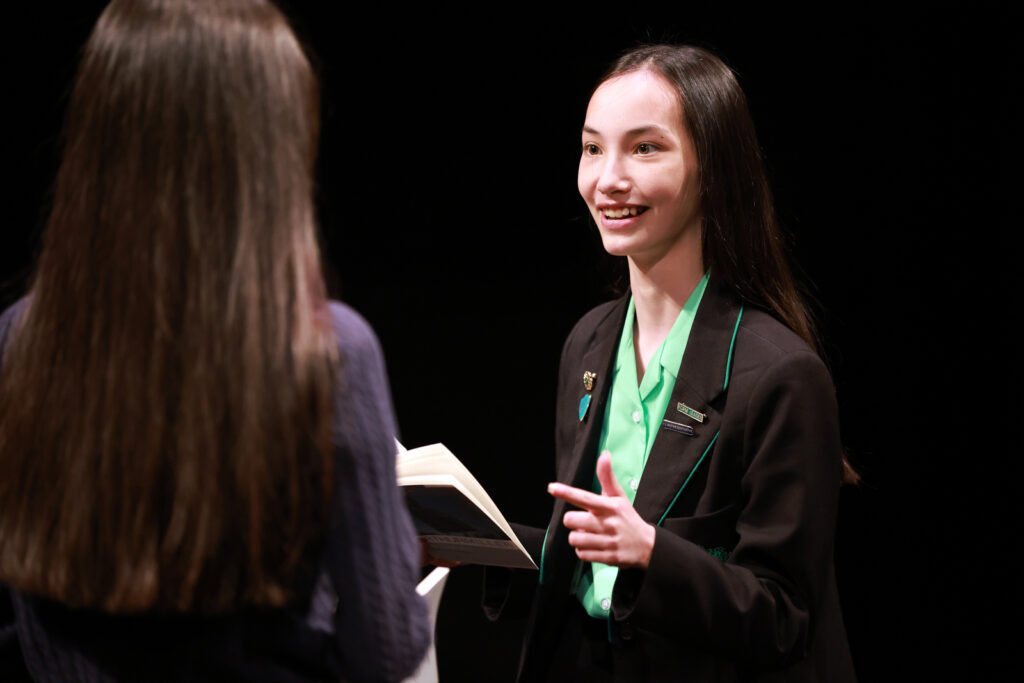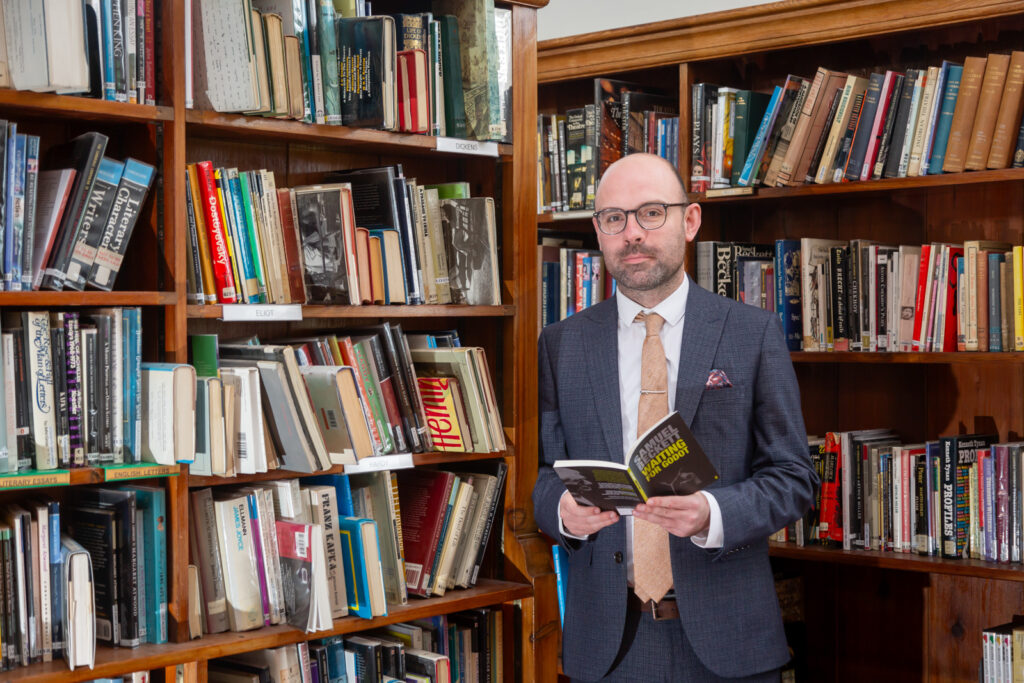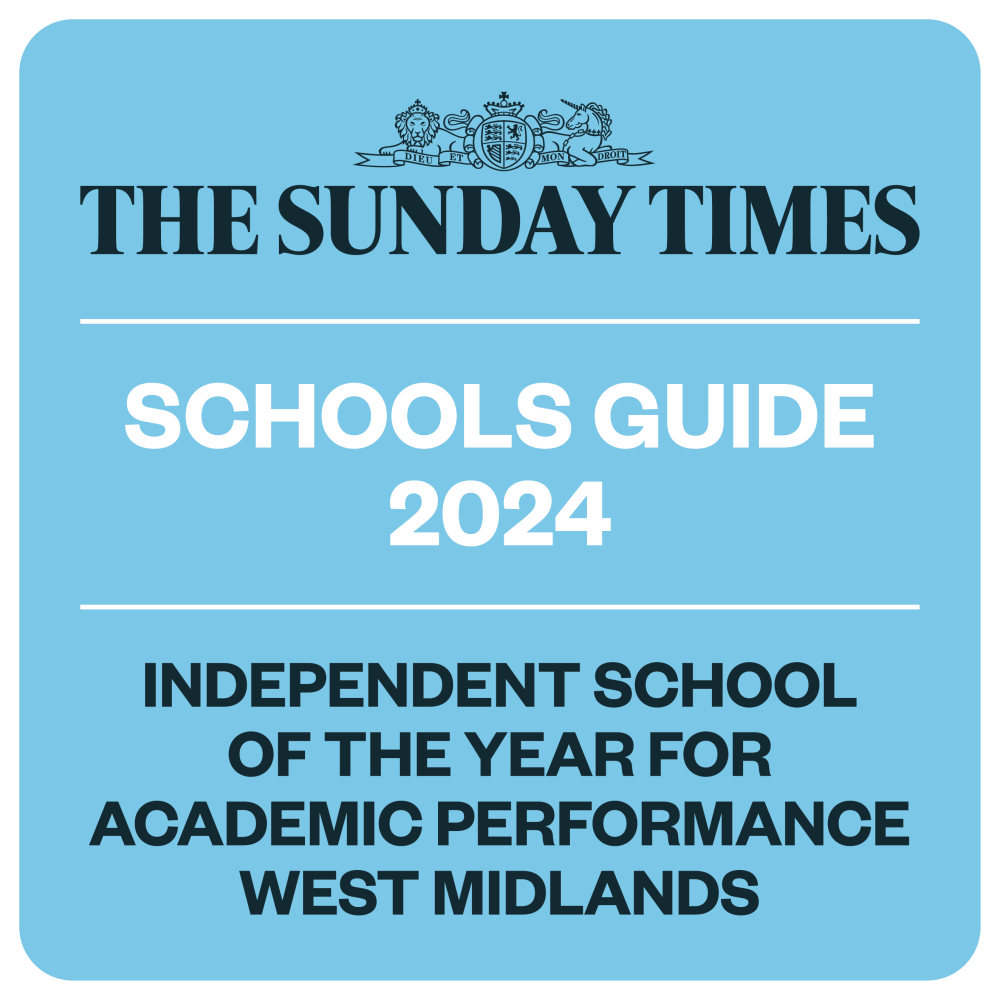English

Our dedicated staff are passionate about the subject and aim to transmit that delight to their students, teaching them to use English effectively, to enjoy all forms of language and literature and to continue the school’s tradition of outstanding performances in the demanding GCSE English examinations, at A Level and beyond.
Reading widely and perceptively is the key to writing well and to developing imagination, empathy and character. Because of this, staff refuse to categorise works as ‘good’ or ‘bad’ books but tailor individual reading to each student after informal discussions on her tastes and interests. This encourages everyone to read for pleasure, not just to assimilate information or pass exams. Creative writing is a particular strength and numerous students go on to literary, academic and media careers.
Texts taught in each of the first three years aim to cover a range of issues, periods and genres. We explore themes connected to transformation, conflict and social voices. These texts form the focus of our teaching and much of our additional work on language is developed through them.
In Year 7 we spend time focusing on various aspects of presentation, grammar and punctuation, alongside the introduction of key literary terms. In Year 8 and Year 9 these concepts are revisited as part of a more detailed analysis of texts and the development of critical vocabulary.
Assessment is carried out in a variety of ways: through classwork, both oral and written; homework, whether it be short answer questions, essays, creative compositions, research or notes; retrieval practice, and annual exams. Students will have at least three formal pieces of feedback per half-term.
Students are entered for both GCSE English Language and GCSE English Literature.
English Language
Students will demonstrate their abilities in three key areas: reading, writing and speaking.
Students will sit Paper 1 (2hrs 15mins) on nonfiction texts and transactional writing (worth 60%). The students also complete two coursework essays, one on imaginative writing, as well as a response focused on a poetry and prose analysis task (40%).
English Literature
Students will have the opportunity to explore their literary interests and learn the skills necessary for literary study. Students will be encouraged to develop the ability to understand and respond to a wide range of types of literary text and have awareness of social, historical and cultural contexts in the study of literature. Students will demonstrate their ability to respond to texts critically, explore how language contributes to the meaning of text and explore relationships between relevant materials.
Students will sit Paper 1 (2hrs) on poetry and modern prose (worth 60%). They will also complete a piece of coursework responding to a Shakespeare text, as well as an essay examining a modern play (40%).
We follow the Edexcel English Literature specification.
The course is exciting and challenging, demanding engagement and insight. It shapes students’ understanding of form and how this frames our interaction with literary texts. Over the course of the two years students will study drama, novels and poetry. The drama course begins with modern drama – Waiting for Godot by Samuel Beckett, followed by Shakespeare’s Hamlet in the second year of study, both assessed by examination.
Students study two Victorian novels from a synoptic and contextual point of view – Hardy’s Tess of the D’Urbervilles and Bronte’s Wuthering Heights, again assessed by examination. The poetry course begins with contemporary (post 2000) poetry, both seen and unseen, complemented by the study of a selection of poems by Keats. The poetry is also assessed by examination.
The most challenging and exciting part of the course, undertaken in Year 13, is the independently produced coursework essay; both texts and titles are chosen by the students to reflect their interests. The focus is very clearly on an informed and thoughtful response to literature of all kinds. This A Level would be ideal for all students committed to literary study; we welcome students who approach the subject with enthusiasm and commitment.
Meet the Head of Department
Dr Kennedy
Dr Kennedy holds a joint honours degree in English and Philosophy. He completed his postgraduate work at University College Cork, before studying for his PGCE at the University of Warwick. Since then, he has worked across a range of schools in both the maintained and independent sectors, serving in a diverse series of roles, both academic and pastoral, as a Teacher of English, Senior Head of House, and in a variety of Extended Leadership positions. He is currently Head of English at KEHS and a Teaching and Learning Lead. In addition to his work in education he enjoys spending time with friends and family.

Future Careers
The study of English at an elite level is an inherently worthy pursuit. Students who continue their exploration of the subject at university level, including Oxbridge often subsequently enter graduate level professions at a high level.
In addition, students continue to transfer their skills into more specific roles such as in the media, research, education, law, marketing and communication.
Beyond the classroom
The English Department organises trips to theatres, workshops and lectures, as well as hosting visiting authors and theatre companies where appropriate and helpful.
The Department also oversees creative writing groups, run by Sixth Form students, where budding young writers are encouraged to share their work with each other and with a wider audience.






